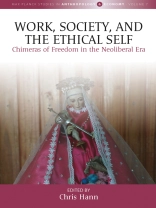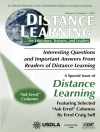Primarily on the basis of ethnographic case-studies from around the world, this volume links investigations of work to questions of personal and professional identity and social relations. In the era of digitalized neoliberalism, particular attention is paid to notions of freedom, both collective (in social relations) and individual (in subjective experiences). These cannot be investigated separately. Rather than juxtapose economy with ethics (or the profitable with the good), the authors uncover complex entanglements between the drudgery experienced by most people in the course of making a living and ideals of emancipated personhood.
Inhoudsopgave
Preface
Chris Hann
Introduction: Work and Ethics in Anthropology
Chris Hann
Chapter 1. The Meaning of “Free” Work: Service as a Gift, and Labor as a Commodity for Ni-Vanuatu Labor Migrants
Rachel E. Smith
Chapter 2. On the Meanings of Pleasure: Work, Ethics, and Freedom in the Hunza Valley
Katherine J. L. Miller
Chapter 3. Ethics of Work and Freedom in the Argentinean Andes: Value Creation and Virtuous Self-Crafting through Miniature Production
Olivia Angé
Chapter 4. Pursuing Pleasure at Work: Friendship and Precarity at North Indian Call Centers
Akanksha Awal
Chapter 5. More Than Money: Work as Self-Realization in Accra’s Private Media
Anna-Riikka Kauppinen
Chapter 6. Capitalism, Overwork, and Polanyi’s Dialectics of Freedom: Emerging Visions of Work-Life Balance in Contemporary Urban China
Gonçalo Santos, Yichen Rao, Jack L. Xing, Jun Zhang
Chapter 7. From Freedom to Loaf to Freedom to Work: The Late Socialist Countermovement and Liberalization from Below in Yugoslavia
Ivan Rajković
Chapter 8. Max Weber’s Heirs? Work and Ethics among Small Business Owners in East Germany
Sylvia Terpe
Chapter 9. Click for Work: Rethinking Freedom through Online Work Distribution Platforms
Ilana Gershon and Melissa Cefkin
Chapter 10. Unicorn-Makers Working for Freedom (and Monopolies): The Work of Venture Capital Investors
Johannes Lenhard
Chapter 11. Individuality, Teamwork and Work Processes in a Financial Services Center in Germany
Magdalena Dąbkowska
Chapter 12. Writing Without Fear—or By-Lines: Freedom and Frustration among US American Ghostwriters
Deborah A. Jones
Afterword
Gerd Spittler
Index
Over de auteur
Chris Hann is a Founding Director of the Max Planck Institute for Social Anthropology (Halle/Saale) and a Fellow of Corpus Christi College, Cambridge. Prior to moving to Germany, he was Professor of Social Anthropology at the University of Kent (Canterbury). Recent publications include Repatriating Polanyi: Market Society in the Visegrád States (Central European University Press, 2019) and The Great Dispossession. Uyghurs between Civilizations (LIT Verlag, 2020, with Ildikó Bellér-Hann).












